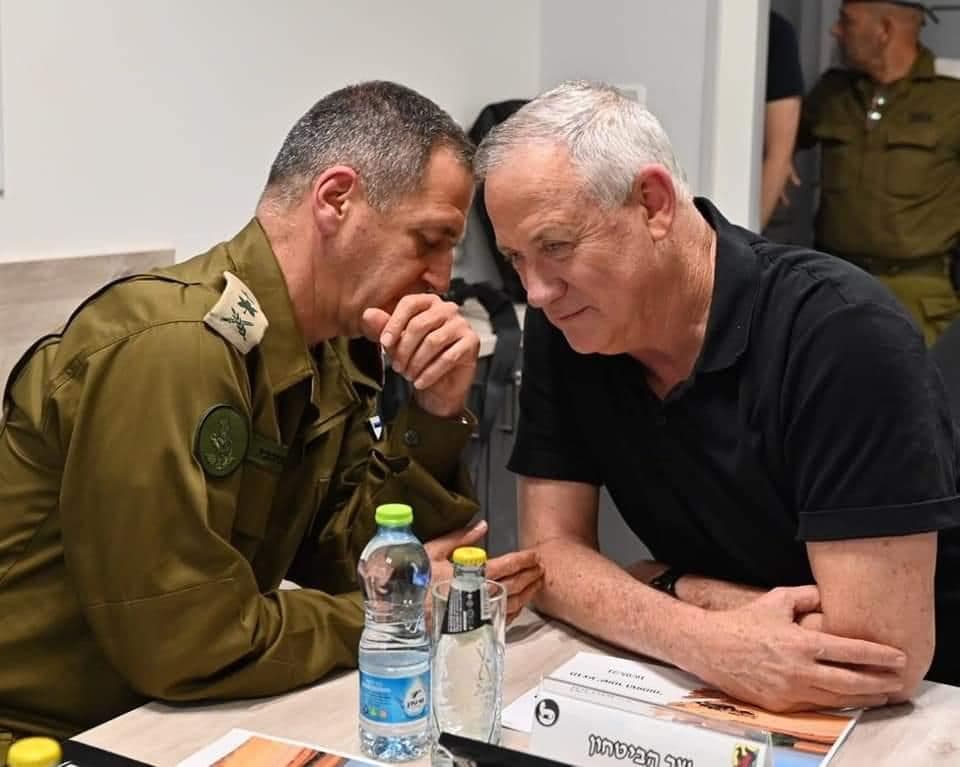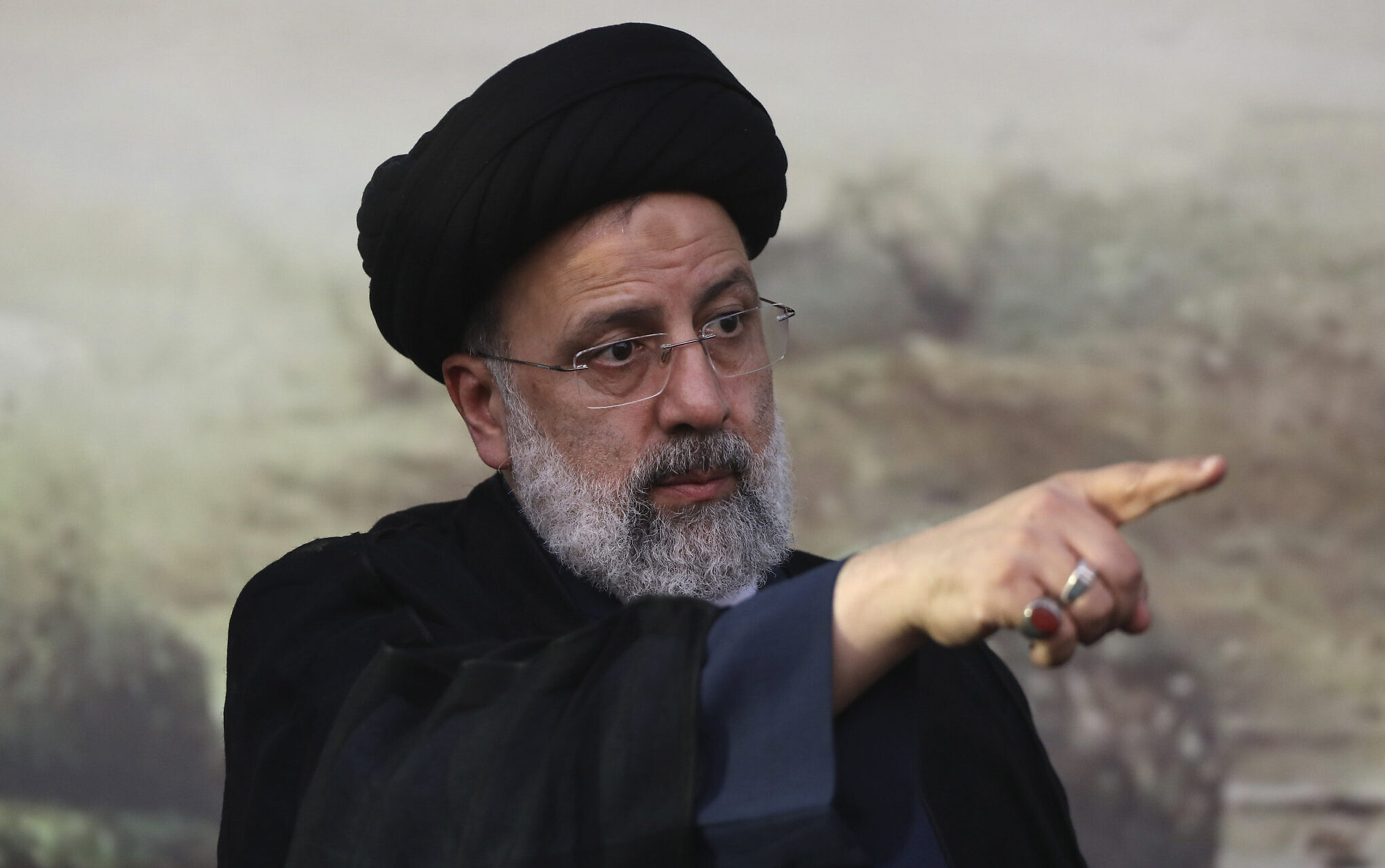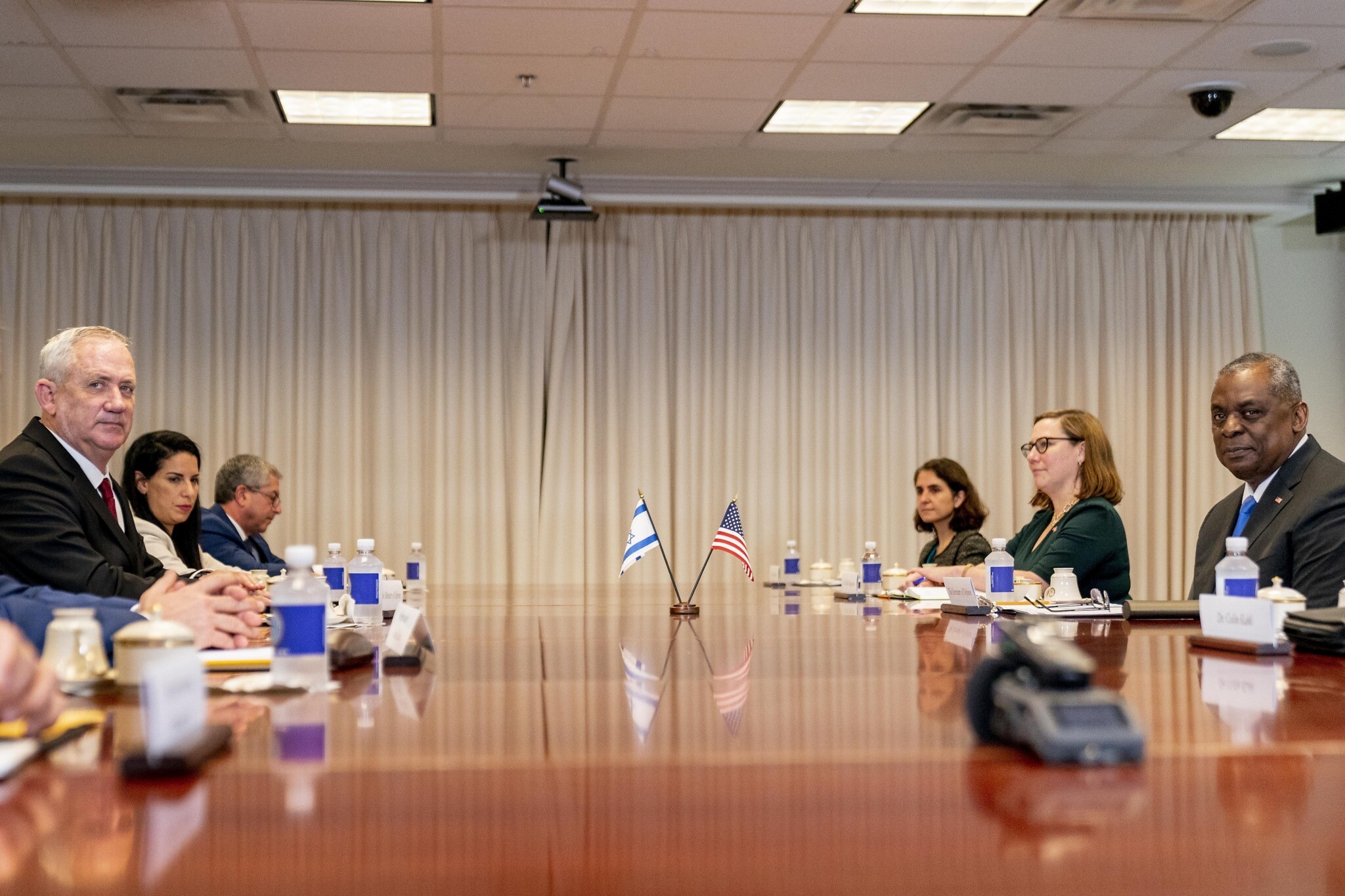US said to boost military cooperation with Israel, Mideast allies to hinder Iran
IDF chief Aviv Kohavi, on his way to Washington, reportedly seeks to deepen coordination with Gulf states and expand normalization agreements to other moderate countries
As it continues indirect talks with Iran on rejoining the 2015 nuclear accord, the United States has reportedly increased military coordination with Israel and with a number of moderate Middle Eastern countries in an effort to counter the threat posed to the region by the Islamic Republic.
Over the past two months, the US military’s Central Command (CENTCOM) has increased the pace of coordination and the number of high-level meetings with Israel, Egypt, Jordan, several Gulf states, Cyprus and Greece, Israeli news site Walla reported Sunday.
The report comes as IDF Chief of Staff Aviv Kohavi heads to the US with a senior delegation of top Israeli military officers to meet with American officials in Washington and discuss Iran’s nuclear program and its expansionist efforts in the region.
“The chief of staff will discuss with his counterparts current shared security challenges, including matters dealing with the Iranian nuclear threat, Iran’s efforts to entrench itself militarily in the Middle East, Hezbollah’s rearmament efforts, the consequences of the threat of precision-guided missiles and joint force build-up,” the Israel Defense Forces said in a statement on the delegation last week.

IDF Chief of Staff Aviv Kohavi (L) and Defense Minister Benny Gantz (R). (Ariel Hermoni/Defense Minister)
According to Walla, diplomatic sources have said that both Kohavi and Defense Minister Benny Gantz believe Iran’s aggression across the region creates the possibility of Israel deepening ties with moderate Sunni Arab states that have signed normalization agreements with Israel over the past year, including the United Arab Emirates and Bahrain. They also believe relations can be significantly improved with other Arab countries that have not yet signed agreements with the Jewish state, the report said.
On Friday, Channel 13 news reported that Prime Minister Naftali Bennett is hoping to use the coming weeks, ahead of the inauguration of the new hardline Iranian president Ebrahim Raisi, to hold talks with Washington in order to positively influence the expected US return to the nuclear deal.
The report said Bennett has removed a ban by his predecessor, Benjamin Netanyahu, on Israeli officials discussing the details of the emerging renewed deal between the US and Iran. Netanyahu had instructed security officials not to hold talks on the details of the deal with American officials, in an apparent effort to distance Israel from it.
Last week, Iran announced that it had amassed 6.5 kilograms (14.3 pounds) of uranium enriched to 60 percent purity, and 108 kilograms of uranium enriched to 20% purity in five months. Uranium enriched to those levels can be relatively easy to further enrich into a weapons-grade level of 90% purity.
 Iran’s Governor to the International Atomic Energy Agency (IAEA), Kazem Gharib Abadi, leaves the ‘Grand Hotel Vienna’ where closed-door nuclear talks take place in Vienna, Austria, June 12, 2021. (AP Photo/Florian Schroetter)
Iran’s Governor to the International Atomic Energy Agency (IAEA), Kazem Gharib Abadi, leaves the ‘Grand Hotel Vienna’ where closed-door nuclear talks take place in Vienna, Austria, June 12, 2021. (AP Photo/Florian Schroetter)
Former US president Donald Trump abandoned the Iran deal, known as the Joint Comprehensive Plan of Action (JCPOA), in 2018, imposing fresh sanctions on Iran and Iranian officials, leading Tehran to follow suit shortly thereafter. Since then, Tehran has ratcheted up tensions on the nuclear front by amassing greater quantities of enriched uranium at greater degrees of purity and by making advancements in the development of missiles that could be used to carry a nuclear warhead.
In recent months, Iranian and European negotiation teams have been meeting in Vienna to discuss a return to the nuclear deal by the US and Iran — a move staunchly opposed by top Israeli officials. Though all sides have reported progress, the talks have stalled somewhat in recent weeks as Iran geared up for the presidential elections.
According to Sunday’s Walla report, Israeli security officials assess that Iran’s Supreme Leader Ali Khamenei is forcibly delaying negotiations and that no significant developments are therefore expected until the end of the year. The officials were said to believe this gives Israel more time to put pressure on the Biden administration.
Security officials were also reported to believe that Iranian President-elect Raisi will adopt Khamenei’s hardline views on foreign and nuclear policy. They have assessed that Israel must once again prepare plans to potentially attack the Islamic Republic’s nuclear facilities.
 Ebrahim Raisi during a campaign rally in Eslamshahr, southwest of Tehran, Iran, June 6, 2021. (AP Photo/Vahid Salemi)
Ebrahim Raisi during a campaign rally in Eslamshahr, southwest of Tehran, Iran, June 6, 2021. (AP Photo/Vahid Salemi)
“There will be no choice [now] but to go back and prepare attack plans for Iran’s nuclear program. This will require budgets and the reallocation of resources,” an unnamed senior Israeli source was quoted by Channel 12 as saying.
Foreign Minister Yair Lapid tweeted Saturday evening: “Iran’s new president, known as the Butcher of Tehran, is an extremist responsible for the deaths of thousands of Iranians. He is committed to the regime’s nuclear ambitions and to its campaign of global terror.”
Lapid argued that “his election should prompt renewed determination to immediately halt Iran’s nuclear program and put an end to its destructive regional ambitions.”
Source:timesofisrael.com/



